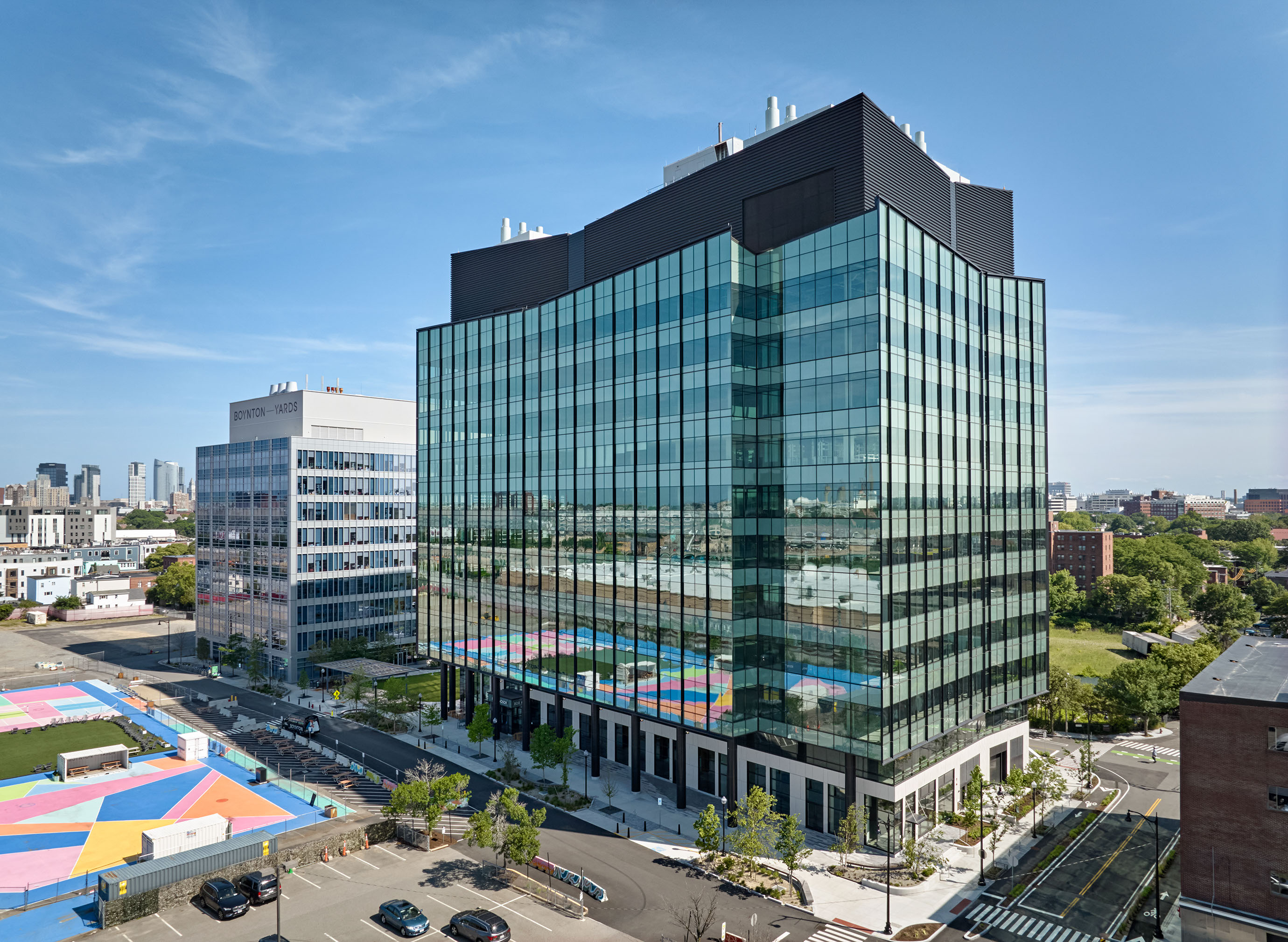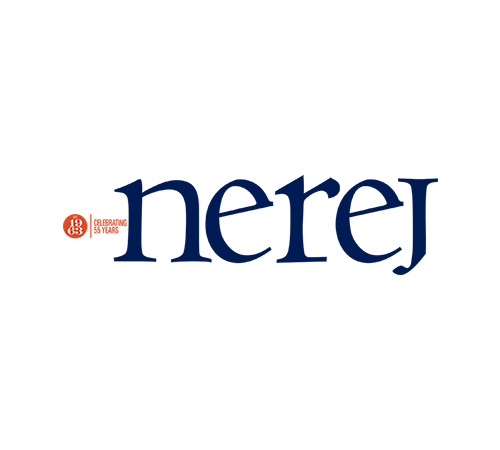11-story Somerville lab, completed by Shawmut and ARC, earns LEED Platinum Certification

Somerville, MA 808 Windsor Street, a 370,000 s/f life science research building, recently achieved LEED Platinum Certification from the U.S. Green Building Council. Developed by Leggat McCall Properties (LMP) and DLJ Real Estate Capital Partners (DLJ), the 11-story 808 Windsor Street is the second building completed in Somerville’s Boynton Yards district.
808 Windsor Street and the adjacent Boynton Yards Park civic and community space were designed by ARC/Architectural Resources Cambridge along with key consultants Atelier Ten, BR+A and Copley Wolff Design Group and construction management led by Shawmut Design and Construction.
“The development team not only prioritized creating a cutting-edge life science facility in Somerville, but the construction of a building designed with long-term sustainability in mind to serve the entire community,” said Rob Dickey, executive vice president & partner, Leggat McCall Properties.
“The project's environmental objectives were developed through a collaborative process involving the client, the City of Somerville, the Union Square community, and the design team,” said Leslie DelleFave, project leader and principal with ARC. “Attaining this highest level of LEED certification reflects the challenges overcome and the significant effort dedicated to this project. It is a source of great satisfaction for the entire team and represents a new milestone in the City of Somerville’s sustainability initiatives.”
“808 Windsor Street demonstrates what’s possible when design, construction, and sustainability goals are fully aligned,” said Mark Malmquist, vice president of large project division, New England Region at Shawmut Design and Construction. “Every element of the project was approached with performance, efficiency, and occupant well-being in mind. Achieving LEED Platinum not only reflects the dedication of our team and partners but also underscores Somerville’s commitment to a sustainable and vibrant community.”
High-Performance Systems
The building utilizes high-performance construction materials and advanced shading technologies to optimize energy usage and reduce embodied carbon. Water-saving fixtures and efficient lighting further contribute to the building's sustainability. The heating and cooling systems combine air-source heat pumps, high-efficiency boilers, and heat recovery chillers enabling energy recapture during periods of simultaneous heating and cooling demand. All of these systems working together result in a 46% reduction in annual site energy consumption compared to the ASHRAE baseline.
Additional environmental features contributing to the LEED Platinum certification include:
- Native vegetation incorporated throughout the site
- Stormwater harvesting and water reuse from the building’s chillers
- Vegetated roof and landscaped public terrace
- Low-E, High Performance, triple-glazed windows with access to daylight and views
- Energy-efficient lighting systems
- Urban location and site redevelopment with access to multiple mobility / public transit options
Atlantic Property Management expands facilities maintenance platform: Assigned two new facility management contracts in RI


New Quonset pier supports small businesses and economic growth - by Steven J. King

Connecticut’s Transfer Act will expire in 2026. What should property owners do now? - by Samuel Haydock

Tenant Estoppel certificates: Navigating risks, responses and leverage - by Laura Kaplan


 (1).png)







 (1).png)
